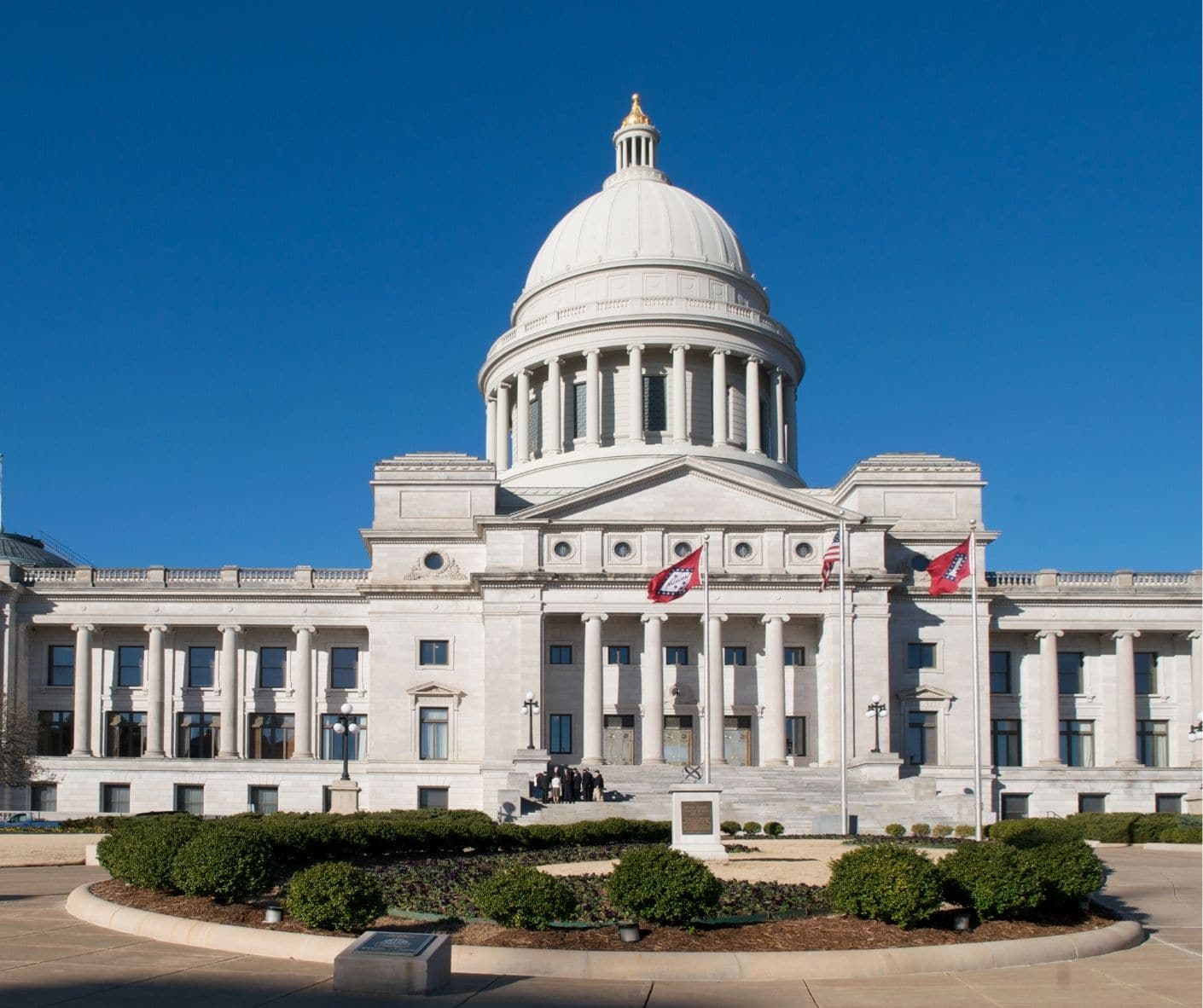Things to know about Fiscal Sessions of the AR Legislature
By David Ferguson
What is the ‘Fiscal Session” of the Arkansas General Assembly? It is the session of the General Assembly held in even numbered years.[i] It is primarily, but not exclusively, for state budget matters, specifically appropriation bills. An “appropriation bill” is legislation authorizing the expenditure of money from the State Treasury.
There are three types of legislative sessions:
- Fiscal Sessions held in even numbered years,
- Regular Sessions held in odd numbered years, and
- Extraordinary Sessions (also known as Special Sessions) called by the Governor for specific issues.
Fiscal sessions are designed to be short in duration. The fiscal session is limited to 30 calendar days but can be extended once by 15 calendar days. To extend the session requires approval by two-thirds of both the Senate and House of Representatives.[ii]
The starting date for a Fiscal Session can vary. The Arkansas Constitution sets the start date on the second Monday in February of even numbered years, but the constitution allows the legislature to change the starting date. This year, the Fiscal Session will start on April 10. This later date was chosen because the political party primaries are being held much earlier this year (March 5), and legislators didn’t want to be in session during the primary campaign.
How can the legislature consider general legislation during a Fiscal Session? The Arkansas Constitution says: “A bill other than an appropriation bill may be considered in a fiscal session if two-thirds (2/3) of the members of each house of the General Assembly approve consideration of the bill.”
Some general legislation gets passed in a Fiscal Session without seeking a two-thirds approval. How can that be? Appropriation bills may include sections of general legislation, if the general legislation is germane to the subject. This is called “special language.” There are enough special language sections proposed that the Joint Budget Committee has a Special Language subcommittee. Often, special language has to do with regulating how the money will be spent or addresses whether the state agency will be exempted from certain laws pertaining to budgeting. One of the most significant sections of special language was passed several decades ago when the Public Safety Department was abolished in an appropriation bill. At times, special language has been so overused in a Fiscal Session that the Joint Budget Committee has had to crack down on its use.
Annual budgets along with Fiscal Sessions were proposed by the Arkansas General Assembly to make better budget decisions. Before the existence of Fiscal Sessions, the legislature met only once every two years, which meant a state agency’s appropriation bill had to include a budget for the coming fiscal year beginning July 1 and a budget for the following fiscal year. With the adoption of Fiscal Sessions, appropriation bills became effective for only one year. It was hoped annual sessions would provide better budget planning and better oversight of state agencies. Most states had already adopted annual legislative sessions before Arkansas made its change.
Some members of the Arkansas Senate and House of Representatives didn’t expect Fiscal Sessions to be approved by the people. When the proposal was approved by the people, there was an immediate panic among some legislative leaders. One told me, he and other Democrats had decided to go along with proposing Fiscal Sessions as a favor to Republican colleagues for their support on other issues and never expected the people to approve Fiscal Sessions. There were immediate discussions on how leaders could limit the work required for fiscal sessions.
It was decided to limit the impact of annual budgets by limiting the budget hearings before a Fiscal Session. Before a Regular Session, there are months of budget hearings. Some legislative leaders didn’t want months of budget hearings every year. Instead, they decided to keep budgeting for a two-year period. Prior to the Regular Session (odd numbered years) the budget hearings continued to plan a two-year budget, but only the first year’s budget is included in the appropriation bill to be considered in the Regular Session. Then for the Fiscal Session (even numbered years) only a few days of hearings are scheduled to make any changes to the second-year budget which had already been prepared the year before.
Having Fiscal Sessions allows state budgets to be tweaked without having to depend on the Governor to call a special session. Although the legislature passed up the opportunity to look deeper into state agency budgets by limiting budget hearings, being able to adjust budgets every year is a benefit.
About the same time the legislature proposed annual budgeting and Fiscal Sessions, they also started a process that has undermined the legislature’s budget control. The legislature gave Governors the ability to spend millions of dollars in discretionary funds. The Governor merely has to get approval from one legislative committee, the Legislative Council. That is a much smaller hurdle than having to get an appropriation bill passed to change the budget.
In Arkansas, appropriation bills are limited to a single subject. This means a state agency may have one or more appropriation bills. This is very different from budgeting in Congress where budget bills are very long and include many unrelated budget areas.
Appropriation bills require a three-fourths vote of the Senate and the House of Representatives. Even with such a high threshold it is rare for an appropriation bill to have difficulty passing.
Budget hearings and the proceedings of the Senate and House of Representative are live streamed on the internet. If you would like to view committee or floor action you may do so by visiting the website of the Senate or House of Representatives.
Conduit News depends on readers like you. Support our cause. Donate today.
[i][i] Arkansas Constitution, Article 5, Section 5
[ii] Arkansas Constitution, Article 5, Section 17



